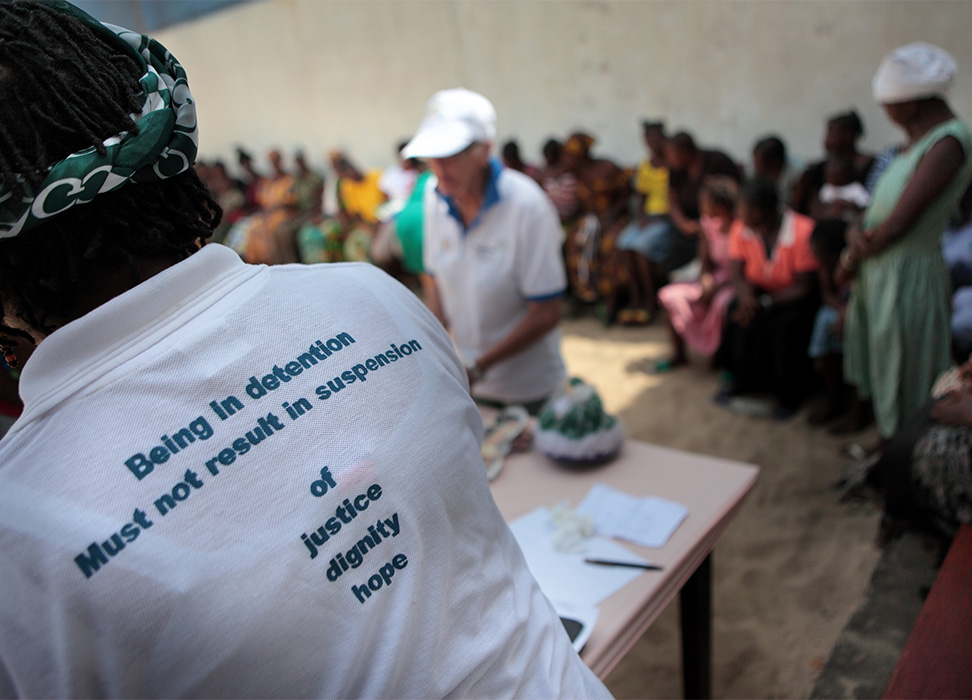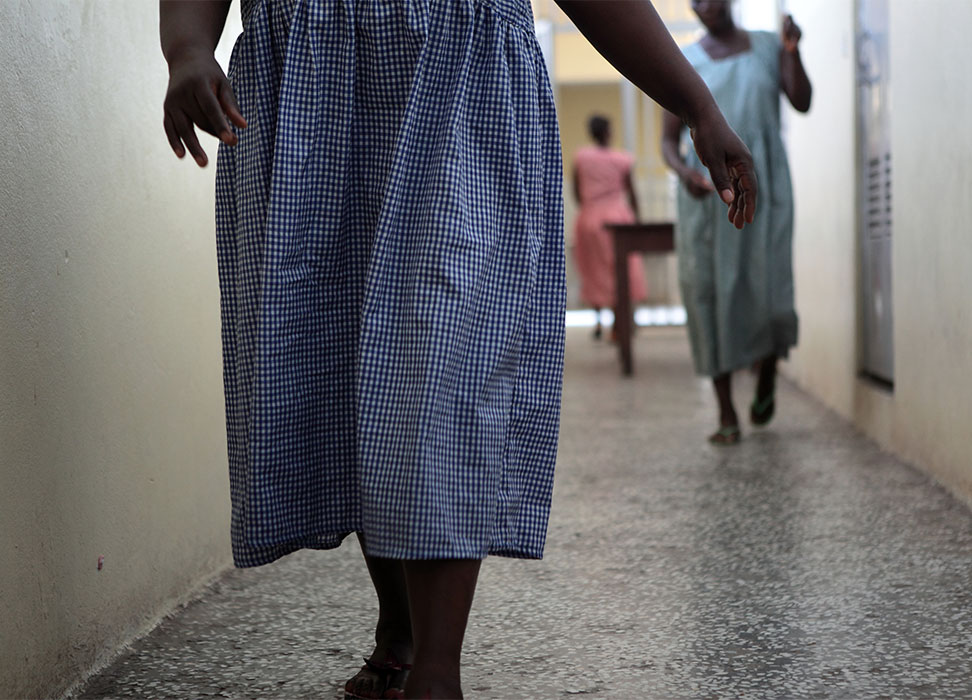4653-Test multiple layout section
13 March 2024

On 23 July 2021, a group of women sat expectantly in the audience of the Parliament of Sierra Leone, to witness a decision that changed their lives. It was the day lawmakers voted unanimously to abolish the capital punishment.
“To see the death penalty abolished, I am so happy,” said Mary*, one of the women in the audience.
Others called the decision historic, saying it would help women find the courage to get out of prison as well as happiness for those women who had their death sentences now commuted to life imprisonment.
The women were all former prisoners on death row, whose cases had been supported by AdvocAid, a Sierra Leonean NGO that provides legal aid to women in detention.
“We made sure that many of the clients we represented were able to attend this vote and witness the abolition,” said Rhiannon Davis, who was executive director of AdvocAid at that time. “For us campaigners, the abolition represents huge progress.”
The abolition of the death penalty in Sierra Leone has been the result of decades of work from NGOs like AdvocAid, as well as the country’s human rights commission. It was aided by the continuous recommendations from the Human Rights Council’s Universal Periodic Review (UPR) – which examines the human rights record of each UN Member State.
“I am convinced that Sierra Leone represents an inspiring example of how the UPR mechanism - with the strong support of national stakeholders and development partners - can effectively support concrete changes in law and practice at country level that strengthen the national human rights protection system while ensuring prevention and the success of the Sustainable Development Goals,” said Gianni Magazzeni, Chief of the UPR Branch at UN Human Rights.
“Using every tool that we had”
No one had been executed in Sierra Leone since 1998, but nearly 90 people were on the death row in 2020.
In its 15 years of existence, AdvocAid accomplished the release of six women and three men who had been given capital sentences.
But the organization did not limit its campaign to actions on the ground in Sierra Leone. With the Vance Center, another anti-capital punishment NGO, it participated in the UPR.
“For us, it was about using every tool that we had to advocate directly to the government but also to try to engage the wider international community and really show that this request for abolition was not imposed from the outside on Sierra Leone,” Davis said.

The Freetown Female Correctional Centre in Sierra Leone. © Tom Bradley/ AdvocAid
A cyclical review of the human rights situation of each UN Member State carried out by other Member States, the first UPR of Sierra Leone took place in 2011, with some 13 reviewing States already recommending the abolition of the death penalty.
A reminder of the government’s international treaty obligations
The Human Rights Commission of Sierra Leone (HRCSL), the country’s human rights institution, also contributed with written submissions in favour of abolishing capital punishment, to the UPR to remind the government of its international human rights treaty obligations.

The Freetown Female Correctional Centre in Sierra Leone included women on death row. © Tom Bradley/ AdvocAid
